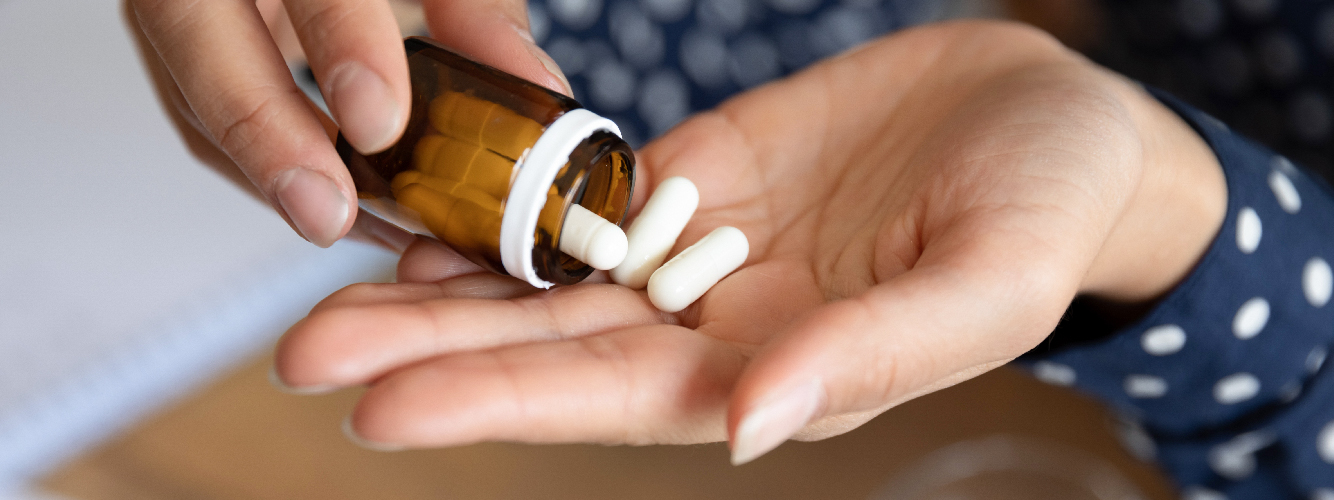
Should Men and Women Take Different Multivitamins?
Posted on December 13, 2021 by Uscriptives
For many of those who take one as part of their daily health routine, a multivitamin is a multivitamin. They scan the formula and see if the product checks the right boxes and, for the most part, they never consider if there’s the reason for a woman to use a different multivitamin than a man would, and they never bother to investigate the issue of using a specific multivitamin for men vs women.
Unfortunately, there are some hidden traps in this approach. Women tend to have specific nutritional needs that are different from their male counterparts; so, it’s important to dive deeper and look more closely at the particulars when selecting the multivitamin that is right for you.
It’s also important to make sure the multivitamin you’re taking is a quality product. There are some solid ways to do this, but first let’s run through the specific needs of women when it comes to taking the right multivitamin.

Iron Up
If you had to sum up the single most important need of women vs men when it comes to their multivitamin, it would be “iron.”
The reason for this is simple. Women lose a lot of iron during menstruation and, as a result, it’s much easier for them to become anemic. This is a primary issue when it comes to using a multivitamin for men vs women; therefore, it’s important to give it thorough consideration during selection.
Iron is necessary for proper brain function, and it helps supply us with adequate energy. It contributes to both sound breathing and the quality of hair and skin.
How much iron is enough? A good question, considering there are gender differences relating to iron, and different needs during different stages of life.
The amount of iron in multivitamins varies widely, but studies have shown that women generally need approximately 18 mg of iron, while most adult men can get by with the minimum daily requirement of 8 mg.
Women may also be vitamin deficient when it comes to the recommended requirements for zinc, calcium, folate, iodine, and vitamin B12, especially if they are on a plant-based diet or don’t eat a lot of protein.
The multivitamins for adults and the multivitamins for women from Uscriptives address both sets of needs in their individual ingredients. They contain the right amounts of calcium, vitamin D, and magnesium, all of which are necessary for bone strength, and they contain CoQ10 to promote heart health. These are quality products that don’t contain Vitamin K, which can interfere with some cholesterol-lowering medications,
Given that women need this extra iron, is it safe for men to take a multivitamin with this amount of iron?
Most experts would say yes, but men with special health conditions should probably check with their doctors just to make sure.
Another way to do this is to consult a nutritionist to get an assessment of individual needs, which may or may not lead to dietary adjustments.
Multivitamins for Pregnancy and Menopause
Since women, in general, do need extra iron, it makes sense to ask what other special needs they might have during pregnancy and menopause. Both of these conditions involve dramatic body changes, so let’s examine what vitamins are necessary to provide the nutritional support they need.
Start with pregnancy. Once again, women need to be careful about getting enough folic acid, zinc, iron, and D3 when they’re going through these changes, as these nutrients help support the nervous system and the immune system while enhancing bone strength and helping to maintain an adequate energy level.
Vitamins B6 and B12 are believed to help with fetal spinal cord and heart development, and folic acid plays a pivotal role in this process as well. Choline can also help with the growth of the placenta and with the functioning of the maternal organs, so some vitamins include extra choline to help with this aspect of pregnancy.
Similarly, women’s needs during menopause include extra hormone support, and in many cases, herbs and nutrients help provide this kind of support. Vitamins and supplements designed to help with this often include natural soy isoflavones, along with vitamins B6, B12 and D, along with calcium and magnesium to help with bone health and energy. Vitamin E is often included as an antioxidant, and extra levels of antioxidants are often recommended as a general aid for dealing with mood swings.
The need for these vitamins and supplement compounds tend to be individual for most women. This is why it is essential that you speak with your general practitioner or your OBGYN before introducing a new vitamin or supplement into your daily routine. Speak with your doctor to assess your personal health needs and health goals before beginning to take a Uscriptives product. This is a sure way to set yourself up for success, and to find the multivitamin that’s right for you.




